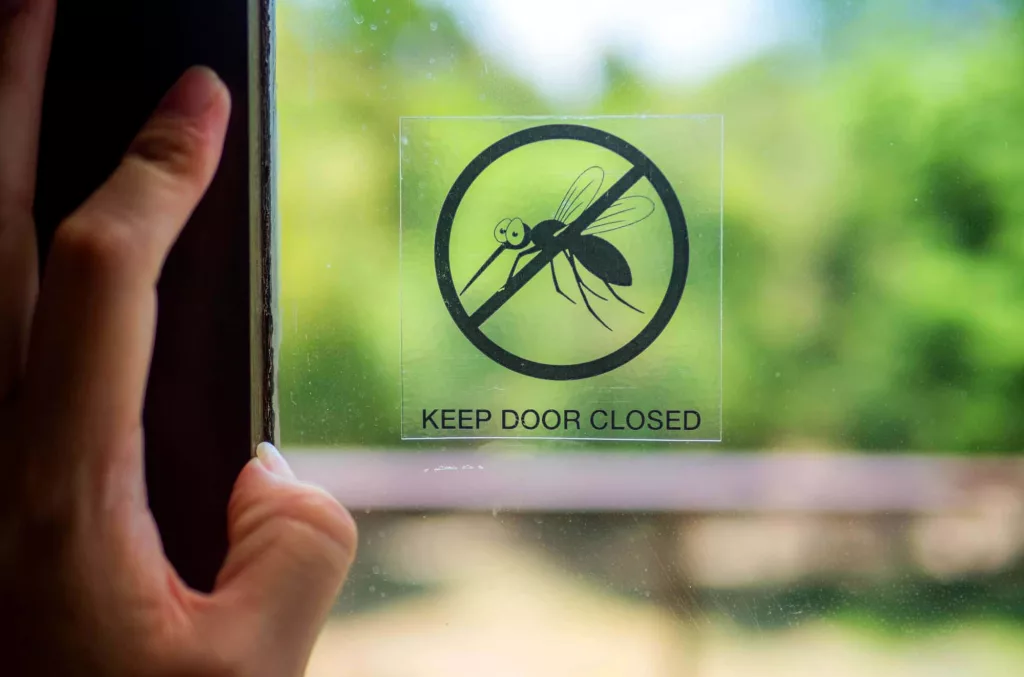After watching an almost unprecedented outbreak last summer of Eastern Equine Encephalitis (EEE) in Michigan, the Berrien County Health Department is out today with a cautionary reminder for people in Michigan’s Great Southwest to take precautions to prevent mosquito and tick bites.
With warmer temperatures and summer approaching in Berrien County, residents are reminded of the threat of what are known as vector-borne illnesses. Many mosquito and tick-borne illnesses are present in Michigan every year and can present a serious risk to human health.
As was conducted last summer, the Berrien County Health Department continues to perform mosquito and tick surveillance throughout the county by regularly trapping and gathering samples of the types of vectors that are present in the area. Most commonly found vectors include blacklegged (or deer) ticks that are known to carry Lyme disease and the aedes mosquitos that can carry West Nile Virus. There is no current information that suggests COVID-19 can be transmitted by mosquitoes, as it is a respiratory virus most commonly spread from person-to-person by respiratory droplets from coughing or sneezing.
In the late summer of 2019, Berrien County and several other areas in Southwestern Michigan experienced a rare and unexpected outbreak of Eastern Equine Encephalitis (EEE) that resulted in two cases of the mosquito-borne virus in Berrien County residents and one fatality. Throughout the state of Michigan in 2019 there were ten cases of EEE, which resulted in six fatalities and four others were hospitalized.
Dr. Rick Johansen, Medical Director for the Berrien County Health Department, tells us, “The human risk to a community for any cases of EEE is a complex interaction, which varies from year to year and includes factors such as temperature, humidity, rainfall patterns, migratory bird populations, and types of mosquito populations present in a particular area.” He notes, “Some years, the virus remains in the animal population alone, including birds, horses, and other large mammals, but when mosquito populations are high, it’s possible for the virus to spread to humans as well.”
No cases of EEE have been diagnosed in animals so far this year, which is typically an early indicator the disease is present in the state. Typically, EEE will not show up in animals or humans until the late summer and fall. At this time, there are no plans in the state for conducting aerial spraying of insecticide to reduce the mosquito population, as had been conducted in October of 2019.
Nicki Britten, Health Officer for the Berrien County Health Department, says, “With the changing of the seasons and other environmental factors such as the large amount of rainfall and ranging temperatures we’ve experienced this spring, it is important to maintain the active surveillance of vectors in our county,” and adds, “We remain committed to preventing illness and protecting health for our residents, whether it’s responding to the COVID-19 pandemic or closely monitoring the potential for vector-borne disease to help to anticipate the effect of vectors on our population’s health.”
All residents can take simple, everyday precautions to protect themselves against vector-borne illnesses that can be transmitted through mosquito and tick bites by doing the following:
- Use an EPA-approved insect repellent: When outdoors, use insect repellent containing DEET, picaridin, IR3535 or oil of lemon eucalyptus on exposed skin and/or clothing. Always follow the directions on the package.
- Wear protective clothing: Wear long sleeves and pants when weather permits.
- Keep mosquitoes from laying eggs near you: Mosquitoes can lay eggs even in small amounts of standing water. Get rid of mosquito breeding sites by emptying standing water from flower pots, bird baths, kid’s toys/pools, and tires.
- Landscape for tick prevention: Keep the grass mowed, remove leaf litter, brush and weeds at the edge of the lawn.
- Consider pesticide application: Pesticides can be applied as targeted treatments to reduce mosquito and tick populations.
- Perform regular tick checks: Ticks can attach to any part of the human body, but prefer body creases and areas with hair such as the groin, armpit, ankle and scalp. Be sure to check yourself, your kids, and pets for ticks after spending time outdoors.
You can also submit a tick or “tick pic” to the Michigan Department of Health and Human Services to have an expert help identify what kinds of ticks you find or download “The Tick App” to show you how to avoid ticks and tick-borne diseases. Find more information about emerging vector-borne illnesses can be found by clicking this link: http://www.michigan.gov/emergingdiseases






